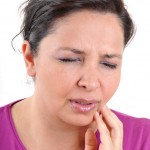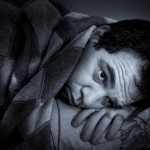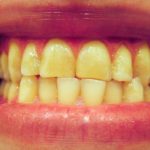
This review to assess the prevalence in bruxism in patients with Down Syndrome included 8 small studies. The studies were hetrogeneous with a pooled prevalence of 33% (95% CI: 22 to 45%).
[read the full story...]
This review to assess the prevalence in bruxism in patients with Down Syndrome included 8 small studies. The studies were hetrogeneous with a pooled prevalence of 33% (95% CI: 22 to 45%).
[read the full story...]
This review of the prevalence of tooth grinding and/or clenching in children and adolescents with neurodevelopmental disorders and other developmental anomalies included 77 studies from 2 countries. However a large proportion of the studies were at high risk of bias so the findings need to be interpreted with caution.
[read the full story...]
The review of the use of botulinum toxin type A injections in the management of primary bruxism in adults included 10 studies. Only 6 of the included studies were RCTs and the studies were generally small are very hetrogeneous so additional well designed and conducted RCTs are needed.
[read the full story...]
Sixteen studies were included in this review of oral appliances for sleep bruxism. The included studies were small and mainly short term and only 7 studies were RCTs . Although the availabel evidence suggests a short term benefit further high-quality studies of longer duration are needed.
[read the full story...]
This review of risk factors for sleep bruxism identified 9 studies involving a total of 12,454 patients. Strong associations were found for sleep bruxism, GERD and a gene related to serotonergic neurotransmission.
[read the full story...]
This review of diagnostic tools for sleep bruxism included 8 studies the majority being at high risk of bias. Portable diagnostic devices had best validity but quality of evidence was very-low to moderate.
[read the full story...]
Only 5 small low quality studies were included in this review of botulinum toxin (BoNT-A ) injections for sleep bruxism. 3 of the included studies were RCTs and while a potential benefit from use of BoNT-A treatment was suggested the findings should be treated very cautiously.
[read the full story...]
This review included 13 observational studies involving 1080 patients demonstrating high prevalence and severity of tooth agenesis in Down syndrome individuals.
[read the full story...]
The review of sleep bruxism was only able to identify 12 small low quality RCTs covering a range of treatments. Most evidence was available for oral appliances but there is no sufficient evidence to state that the occlusal splint is effective for treating sleep bruxism.
[read the full story...]
Sleep bruxism (SB) is a sleep related disorder characterized by tooth grinding or jaw clenching during sleep, which is usually associated with sleep arousal. A wide range of treatments has been proposed including, relaxation exercises, behavioural approaches, dental splints and biofeedback. The aim of this review was to evaluate the efficacy of any biofeedback treatment [read the full story…]